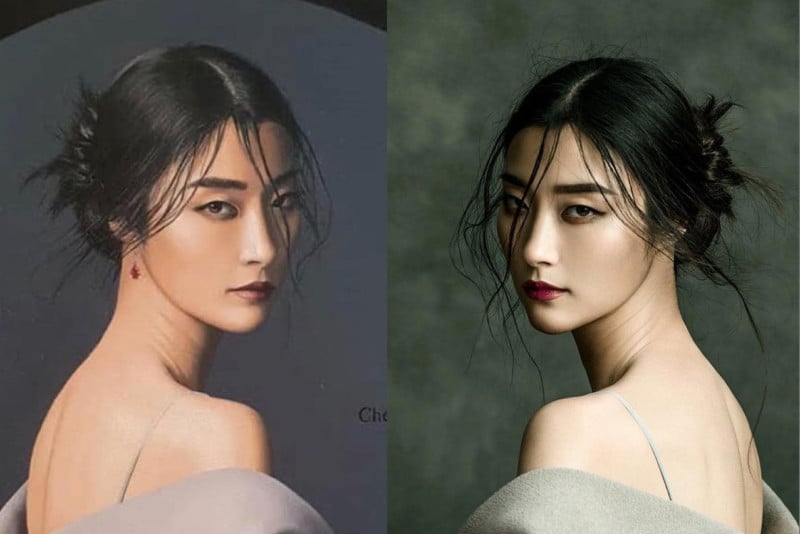Photographer Loses Plagiarism Case Against Artist Who ‘Ripped Off’ Her Work

A court has ruled that an artist accused of copying a photographer’s work did not commit plagiarism.
United States-based photographer Jinga Zhang brought the case to judges at a court in Luxembourg who found that Zhang’s original photo did not meet the criteria to fall under Luxembourgish or European copyright law.
Fine art painter Jeff Dieschburg, who is from Luxembourg, was accused of copying one of Zhang’s photos, a situation which came to light after Dieschburg won the 11th Biennale of Contemporary Art award received 1,500 euros ($1,576).
Zhang shot the original photo for Harper’s Bazaar Vietnam in 2017. The side-by-side comparison of the two images is striking, and Dieschburg admits that as a figurative painter, he needs reference materials.
Zhang took to social media to say that the basis of the Luxembourg court’s ruling was that “the model’s pose in my photo is not unique.”
Dieschburg’s painting has been exhibited at the Commune de Strassen in Luxembourg and displayed for sale with a 6,500-euro ($6,829) asking price.
“I am devastated by the copyright ruling in Luxembourg today, which stated that my work lacks originality and therefore will not receive copyright protection in Luxembourg,” she says.
Zhang questions how the copyright of a photo can be based on a pose alone.
“If having a unique pose is the premise for copyright protection of an image, then nearly all portrait works in the world will not have copyright protection,” she adds.
“The fact that my work has been copied by others countless times is a testament to its originality and style — including in this particular case, where it’s been exploited by the violator for a painting that won an award, exhibited, and was offered for sale for €6,500.”
For his part, Dieschburg told L’essentiel that his artwork was carried out within the framework of his studies.
“A painter can appropriate a material and transpose it into another context. I defend the principle of mimicry. It’s a common artistic strategy. I am still a student. I need references to transcribe the world around me.”
Zhang criticizes the Luxembourgish ruling which she says will allow anyone in the small Western country to “freely and openly exploit, sell, license, and use my work without permission or respect for my right.”
“The worst part is that the ramification not only affects my own work, but sets a dangerous precedent that extends to all photographers and artists whose portraits are now under threat of losing. copyright protection,” she says.
“I will be appealing this decision, as it’s now not only an injustice for myself, but a worrying danger for the entire art and photography community both in Luxembourg and beyond.”